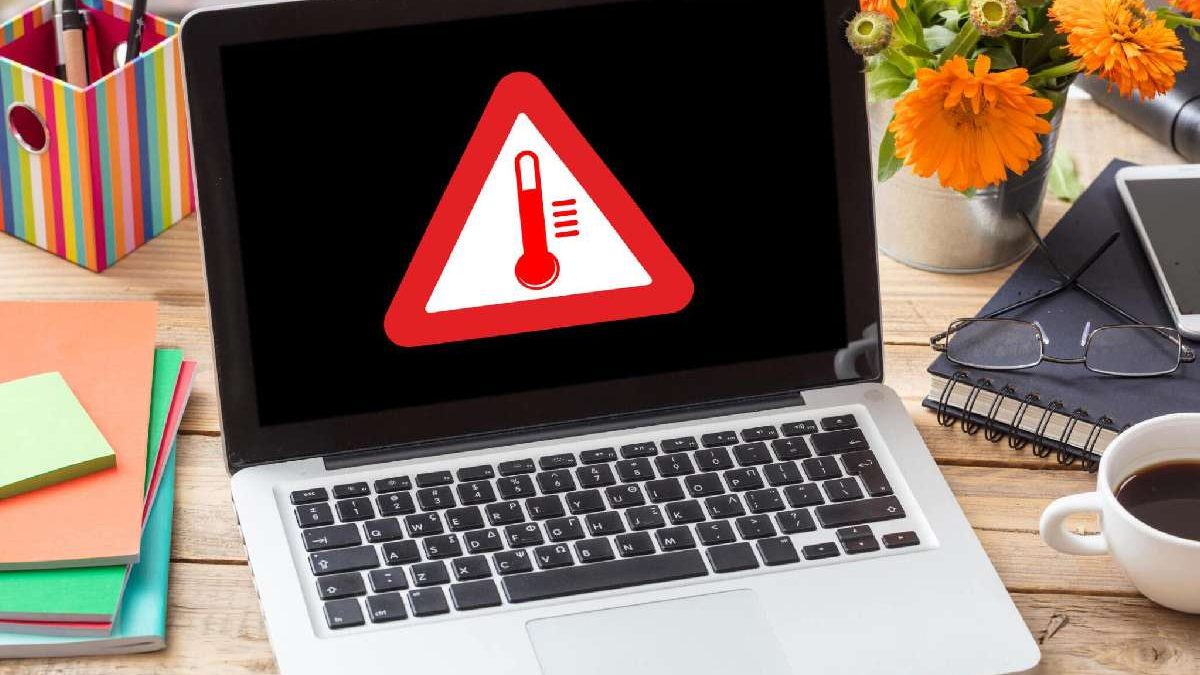One of the most common problems when working with a laptop is overheating. It is because of this that users turn to service centers and spend huge amounts of money. The bottom panel of the computer case, despite the cooling system, can actually get very hot, which over time disables the device and greatly impairs its performance. What to do about it and whether there are ways to cool the laptop – read the article.
How to Protect Your Laptop from Overheating During Prolonged Use?
It doesn’t matter whether you play games, edit, edit photos, work with heavy files, or just spend a lot of time in front of the monitor, solving routine tasks, the internal parts of your computer or laptop are not protected from overheating.
Why Does the Computer Overheat?
You can feel that the computer is overheated by touch – you just have to touch its lid or the bottom where the ventilation system is located. If both panels are hot, this will most likely affect the operation of the device itself. Graphics may become sluggish and loading times may be slower than usual. And one more detail: the cooling system will start working “overtime” – you will hear how loud the fans are.
Not a single gadget is immune from overheating; all users experience this from time to time. But if the situation repeats itself over and over again, and the computer heats up so much that it burns when touched, you need to take action.
Overheating occurs due to defects or malfunctions, improper operation, contamination of the ventilation holes or radiators. Overheating can also be caused by increased room temperature. And when exposed to direct sunlight, the computer suffers thermal shock, which can lead to a total overload of the internal system.
It may also be due to too “heavy” applications that require a lot of energy from the gadget. Demanding applications, such as editing, overload the CPU or GPU, which contributes to overheating. Outdated software, although not significant, also affects the increase in the temperature of the internal components of a laptop – unupdated software ceases to cope with resource-intensive tasks or games.
Well, the last common mistake that causes the equipment to overwork is a lot of open tabs in the browser. Believe us, hundreds of open pages on the Internet overload the processor and memory no less than downloading heavy files.
When your computer begins to overheat, taking a break to explore the exciting world of online casino games, like the ones offered at cleopatra casino au, can provide a much-needed escape.
What to Do If Your Computer Overheats: 5 Steps
- Oddly enough, the air circulation can be hampered by an ill-conceived and unfinished laptop design by the developers. In this case, you need to raise the computer by placing a medium-thick book under it or constructing any other support. The main thing is not to block the ventilation with an object and not to interfere with its removal of heat. The best option would be to purchase a separate cooling pad with fans that runs from a wall outlet or via USB.
- If your computer often overheats, wean yourself from the habit of working with it on the bed and stop leaving the device on a rug or blanket. Always place equipment on hard surfaces to ensure optimal air flow under the cabinet.
- Over time, dust accumulates in the laptop, clogging the cooling system. What should I do? The best thing to do is to take your laptop to a service center once a year so that experts can clean it from the inside. However, you can try to take action yourself: open the back cover of the laptop and carefully clean the fans with a soft brush, toothbrush or ear swab. Another safe option is to use a can of compressed air. But you definitely shouldn’t use a home vacuum cleaner for such purposes; it can cause static interference, and strong air intake can damage small board elements.
- Optimize your computer or laptop settings. Try changing your performance settings – lower the brightness and reduce the screen resolution. Reduce the use of programs that consume a lot of energy: go to the task manager and see which programs take up the most memory, CPU and disk. If any of the parameters approaches 100%, the application definitely affects the performance of the computer. Well, just in case, check how long ago you updated the operating system.
- It wouldn’t hurt to install an antivirus and check your laptop for malware. Sometimes viruses can “mimic” applications and files, taking up entire gigabytes of space!
- The easiest way to cool down your computer is to turn it off completely for a few hours. Many of us, instead of telling the laptop to “end the session,” mistakenly slam the lid of the device after work, sending it to sleep mode. You can’t do that. From time to time, just like us, a laptop needs a good rest – then it will definitely not surprise you with system failures and overheating.
- Install a thermometer program and monitor the temperature of the gadget. If it rises above 70 degrees, this is an alarm bell.

